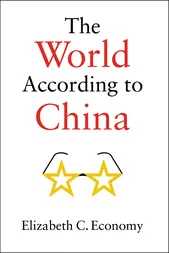In Brief
How Is Congress Trying to Support the Hong Kong Protesters?
If passed, a new bill would signal U.S. support for the protesters and put pressure on China’s leaders.
As clashes between protesters and police in Hong Kong become increasingly violent, members of the U.S. Congress have pushed to pass legislation that would address human rights abuses, visas for protesters, and Hong Kong’s declining autonomy.
The House of Representatives passed the Hong Kong Human Rights and Democracy Act in October, and lawmakers are working to get it quickly approved in the Senate. The bill’s passage would be the first substantive step taken by Congress to support Hong Kong since historic protests started in June against Beijing’s tightening grip on the city, including what protesters see as a clampdown on democratic freedoms they were promised in 1997.
More on:
“Adoption of this new law would be one of several peaceful steps that [Washington] can take to deter the People’s Republic of China from further oppression in Hong Kong,” says CFR’s Jerome A. Cohen.
What would the law do?
The main features of the bill are to
- impose sanctions and visa restrictions on individuals responsible for human rights abuses against anyone in Hong Kong, including arbitrary detentions and forced confessions;
- state that Hong Kong residents should not be denied U.S. visas solely because they participated in protests;
- require the State Department to evaluate every year whether Hong Kong enjoys a “high degree of autonomy” from Beijing; and
- ask the president to report to Congress on whether U.S. technology has been transferred from Hong Kong to China for use in the mainland’s mass surveillance systems.
What does Congress hope to achieve?
The potentially game-changing part of the bill is the yearly requirement to reassess whether Hong Kong exercises “autonomous decision-making.”
Hong Kong’s special status was enshrined in the 1992 Hong Kong Policy Act, which laid out how the United States would treat the territory differently than it treats mainland China in matters of trade, law enforcement cooperation, sanctions enforcement, and other areas. Hong Kong’s high degree of autonomy was meant to be guaranteed in the Sino-British Joint Declaration of 1984, which transferred the city to the People’s Republic of China, and Hong Kong’s Basic Law, the city’s constitutional document.
More on:
Under the 2019 bill, if the U.S. government determines that Hong Kong is no longer autonomous, it must then reevaluate its treaties, agreements, and laws regarding the territory. That has some experts concerned that the legislation would punish Hong Kong.
Others believe the bill would force Beijing to rethink its efforts to curb freedoms in the city since Hong Kong remains economically and politically important. Even as mainland cities develop, Hong Kong is still one of the region’s most important financial centers, thanks in part to its special relationship with the United States and other countries.
Many protesters have voiced support for the bill, including Joshua Wong, a leader of the 2014 Umbrella Movement, and Denise Ho, a pro-democracy activist and artist. Both met with members of Congress in September.
How has Beijing reacted?
China’s leaders strongly oppose the bill. The country’s foreign ministry has repeatedly warned that China will take “strong countermeasures,” though it remains unclear what that would entail. It has also urged members of Congress to “pull back before it’s too late.”
Beijing sees Hong Kong, officially a special administrative region of the People’s Republic of China, as part of its territory and opposes what it sees as any foreign interference in China’s internal affairs. Even before the bill was introduced, Chinese officials and state media accused the United States of helping orchestrate the protests.
Will the bill become law?
The White House hasn’t said whether President Donald J. Trump will sign it. And before it reaches his desk, the House and Senate must work out minor differences between their bills.
Some experts have suggested that Trump could be reluctant to sign a bill that would anger Beijing given ongoing trade negotiations between the countries. Still, if he refuses to sign, Congress could move to override a presidential veto.
 Online Store
Online Store

